Upper Control Arm Replacement RWD
Removal Procedure
- Raise the front of the vehicle. Refer to Lifting and Jacking the Vehicle in General Information.
- Remove the tire and wheel assembly. Refer to Tire and Wheel Removal and Installation in Tires and Wheels.
- Remove the wheel speed sensor harness and the brake hose bracket from the upper control arm.
- Remove the upper ball joint stud from the steering knuckle. Refer to Upper Control Arm Ball Joint Replacement .
- Remove the retaining bolts and nuts from the upper control arm. Note the location of any shims.
- Remove the upper control arm.
- Inspect all of the parts for wear and damage.
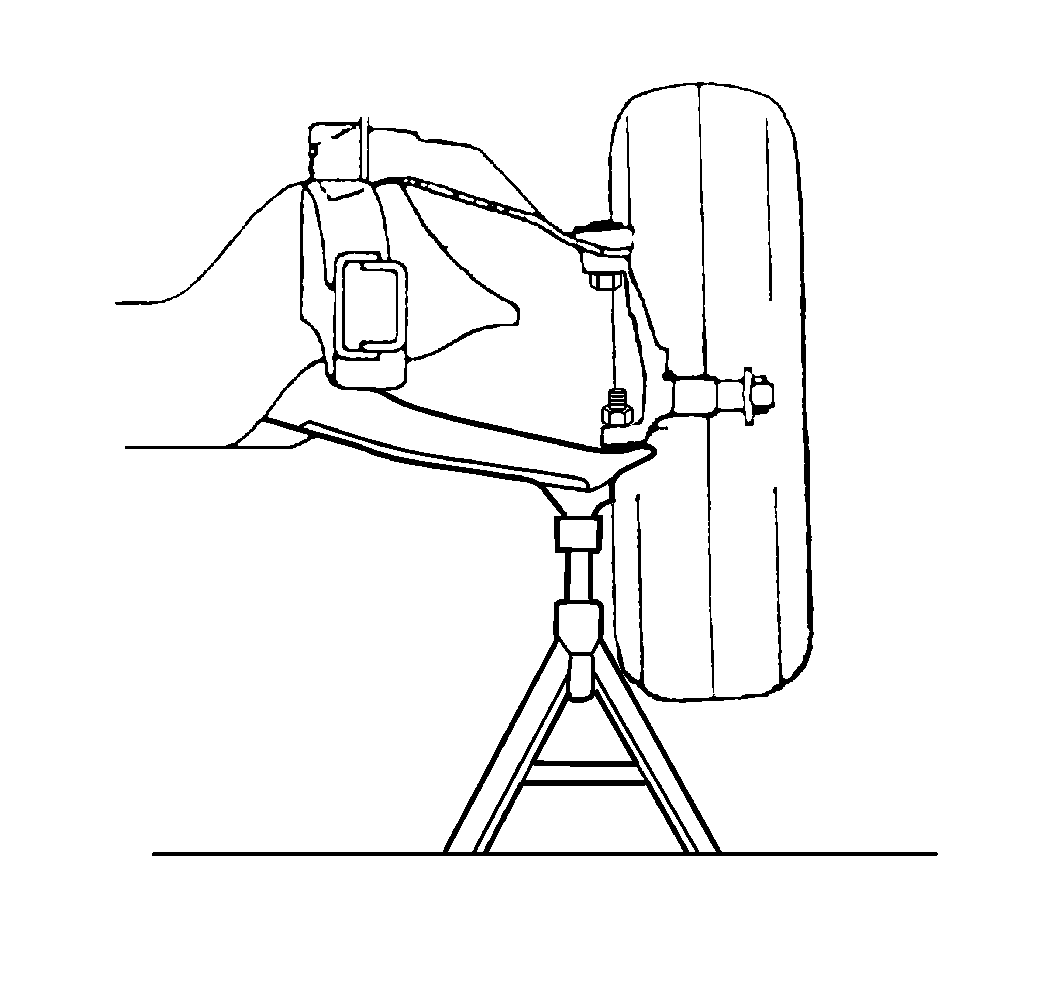
Caution: Floor jack must remain under the lower control arm during removal and installation to retain the lower control arm in position. Failure to do so could result in personal injury.
| • | Support the lower control arm with floor stands. |
| • | Place floor stands under the lower control arms as far outboard as possible (between spring seats and ball joint) to maintain maximum leverage. |
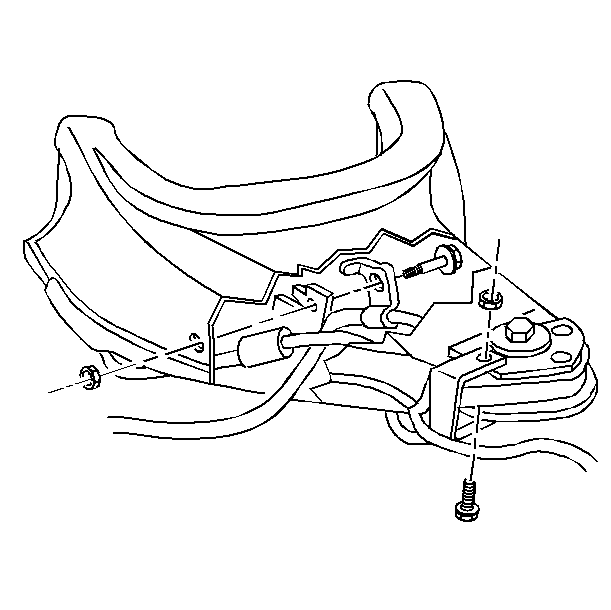
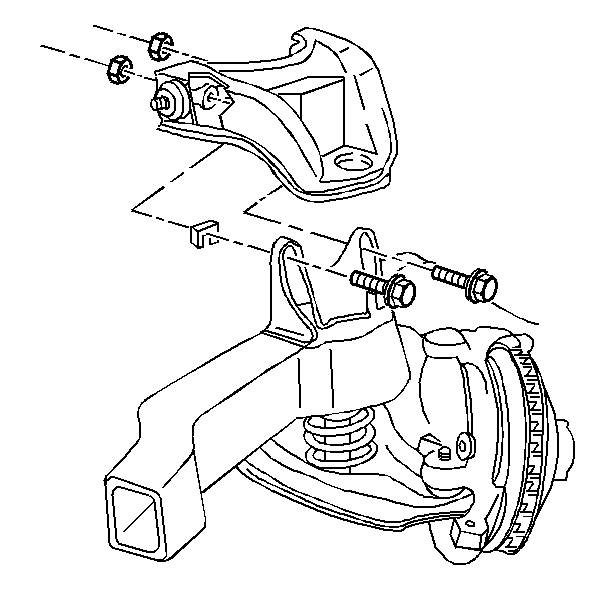
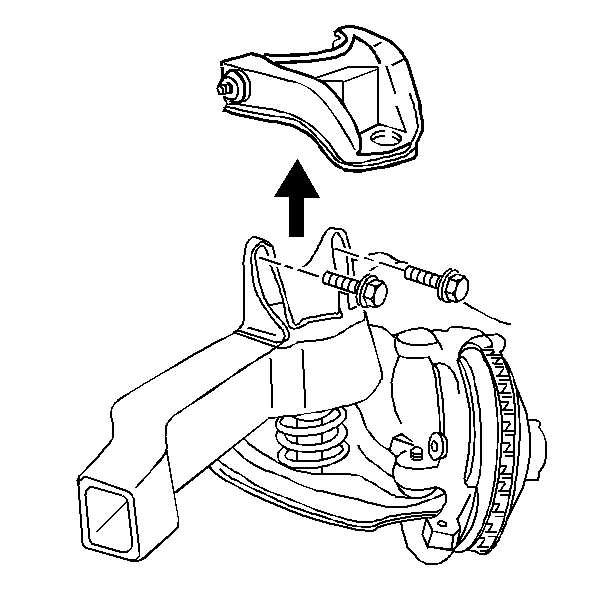
Installation Procedure
- Install the upper control arm to the frame.
- Install the upper control arm retaining bolts.
- Install the shims to the original position.
- Install the upper control arm retaining nuts.
- Install the upper ball joint stud to the steering knuckle. Refer to Upper Control Arm Ball Joint Replacement .
- Tighten the upper control arm shaft nuts.
- Install the wheel speed sensor and the brake hose bracket to the upper control arm.
- Install the wheel speed sensor and the brake hose bracket to the upper control arm mounting bolts and nuts.
- Install the tire and wheel assembly. Refer to Tire and Wheel Removal and Installation in Tires and Wheels.
- Lower the vehicle.
- Check the front wheel alignment. Refer to Wheel Alignment Measurement in Wheel Alignment.
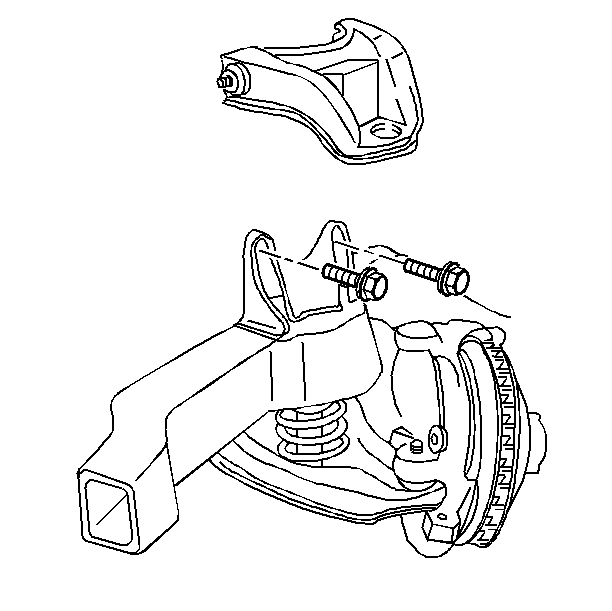
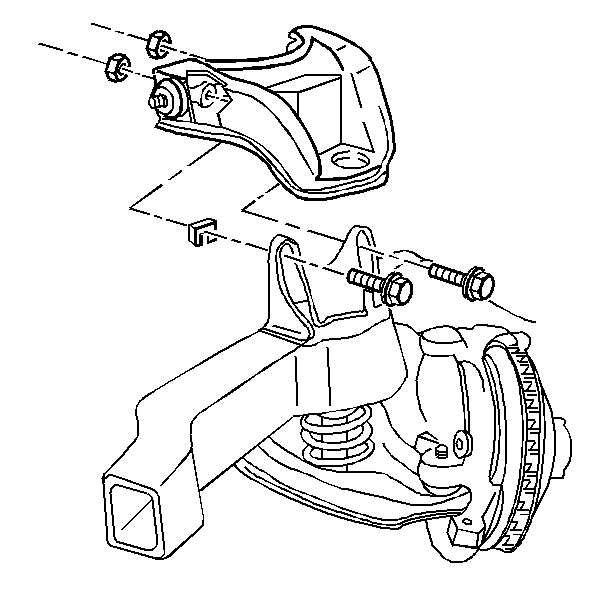
Notice: Use the correct fastener in the correct location. Replacement fasteners must be the correct part number for that application. Fasteners requiring replacement or fasteners requiring the use of thread locking compound or sealant are identified in the service procedure. Do not use paints, lubricants, or corrosion inhibitors on fasteners or fastener joint surfaces unless specified. These coatings affect fastener torque and joint clamping force and may damage the fastener. Use the correct tightening sequence and specifications when installing fasteners in order to avoid damage to parts and systems.
Tighten
| • | Tighten the upper control arm retaining nuts with the front suspension loaded. |
| • | Tighten the upper control arm retaining nuts to 75 N·m (55 lb ft). |
Tighten
Tighten the upper control arm shaft nuts to 115 N·m (85 lb ft).

Tighten
Tighten the wheel speed sensor and brake hose bracket to the upper control
arm nuts to 24 N·m (18 lb ft).
Upper Control Arm Replacement 4WD
Removal Procedure
- Raise the front of the vehicle. Refer to Lifting and Jacking the Vehicle in General Information.
- Remove the tire and wheel assembly. Refer to Tire and Wheel Removal and Installation in Tires and Wheels.
- Unload the torsion bar. Refer to Torsion Bar and Support Assembly Replacement .
- Remove the shock absorber. Refer to Shock Absorber Replacement .
- Remove the cotter pin from the upper ball joint stud.
- Remove the upper ball joint retaining nut.
- Using a pry bar, placed under the upper control arm and on top of the frame, pry upward.
- With the aid of a helper, carefully hammer on the steering knuckle in the area of the upper ball joint stud in order to release the stud from the steering knuckle.
- Remove the upper ball joint from the steering knuckle.
- Remove the upper control arm retaining nuts.
- Remove the upper control arm outer cams.
- Remove the upper control arm bolts.
- Remove the upper control arm inner cams.
- Remove the upper control arm from the frame.
- Remove the upper control arm bumper nut.
- Remove the upper control arm bumper from the upper control arm.

| • | Support the lower control arm with floor stands. |
| • | Place floor stands under the lower control arms as far outboard as possible (between spring seats and ball joint) to maintain maximum leverage. |
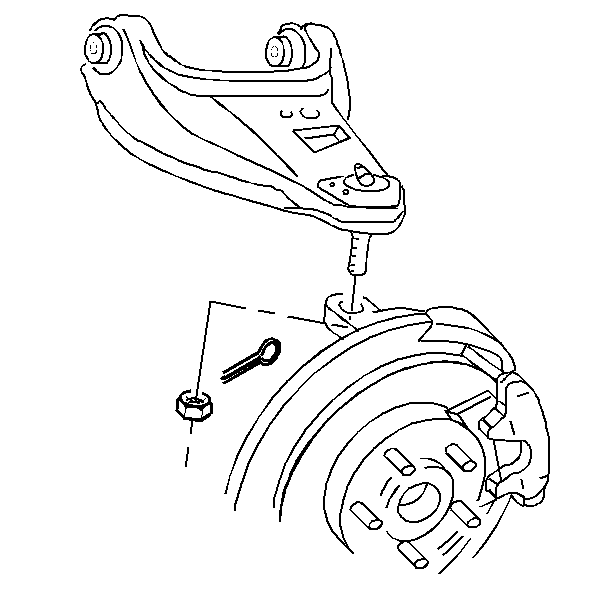
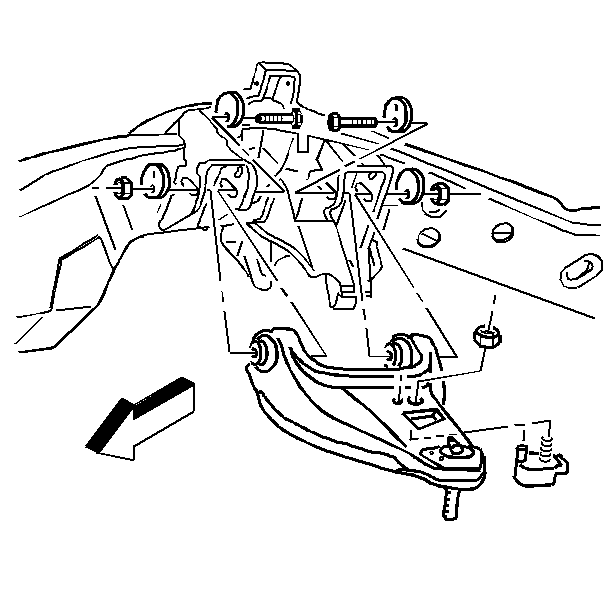
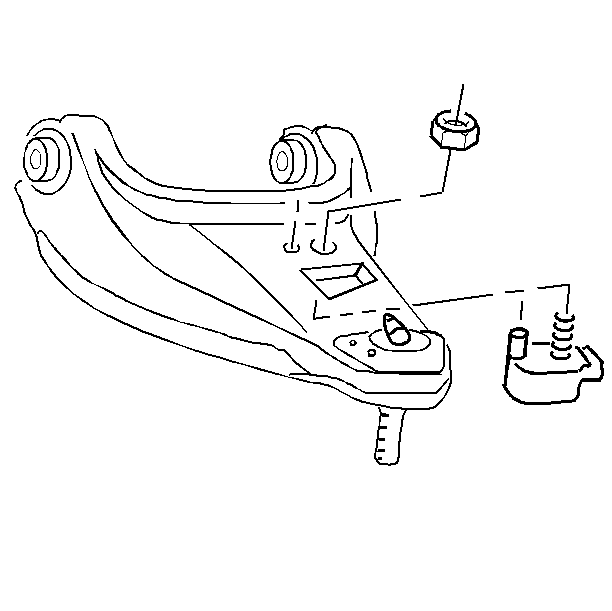
Installation Procedure
- Install the upper control arm bumper to the upper control arm.
- Install the upper control arm bumper retaining nut.
- Install the upper control arm to the frame.
- Install the upper control arm inner cams to the upper control arm retaining bolts.
- Install the upper control arm retaining bolts to the upper control arm.
- Install the upper control arm outer cams.
- Install the upper control arm retaining nuts.
- Install the upper ball joint to the steering knuckle.
- Install the upper ball joint to the steering knuckle retaining nut.
- Tighten the upper ball joint retaining nut to 83 N·m (61 lb ft).
- Tighten the upper ball joint retaining nut in order to align the cotter pin. Do not tighten the upper ball joint nut more than 1/6 turn.
- Install a new cotter pin to the upper ball joint retaining nut. Bend the pin ends against the nut.
- Install the shock absorber. Refer to Shock Absorber Replacement .
- Load the torsion bar. Refer to Torsion Bar and Support Assembly Replacement .
- Install the tire and wheel assembly. Refer to Tire and Wheel Removal and Installation in Tires and Wheels.
- Lower the vehicle.
- Check the front wheel alignment. Refer to Wheel Alignment Measurement in Wheel Alignment.

Notice: Use the correct fastener in the correct location. Replacement fasteners must be the correct part number for that application. Fasteners requiring replacement or fasteners requiring the use of thread locking compound or sealant are identified in the service procedure. Do not use paints, lubricants, or corrosion inhibitors on fasteners or fastener joint surfaces unless specified. These coatings affect fastener torque and joint clamping force and may damage the fastener. Use the correct tightening sequence and specifications when installing fasteners in order to avoid damage to parts and systems.
Tighten
Tighten the upper control arm bumper retaining nut to 27 N·m (20 lb ft).
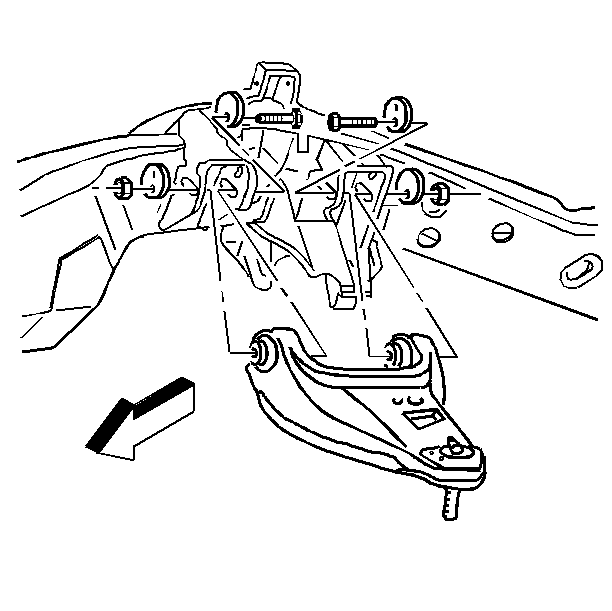
Important: The bolt heads must be opposed inside the bracket.
Important: Tighten the nuts with the front suspension loaded.
Tighten
Tighten the upper control arm retaining nuts to 115 N·m (85 lb ft).

Tighten
